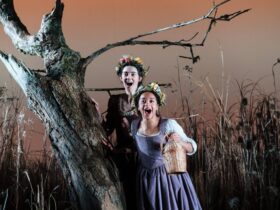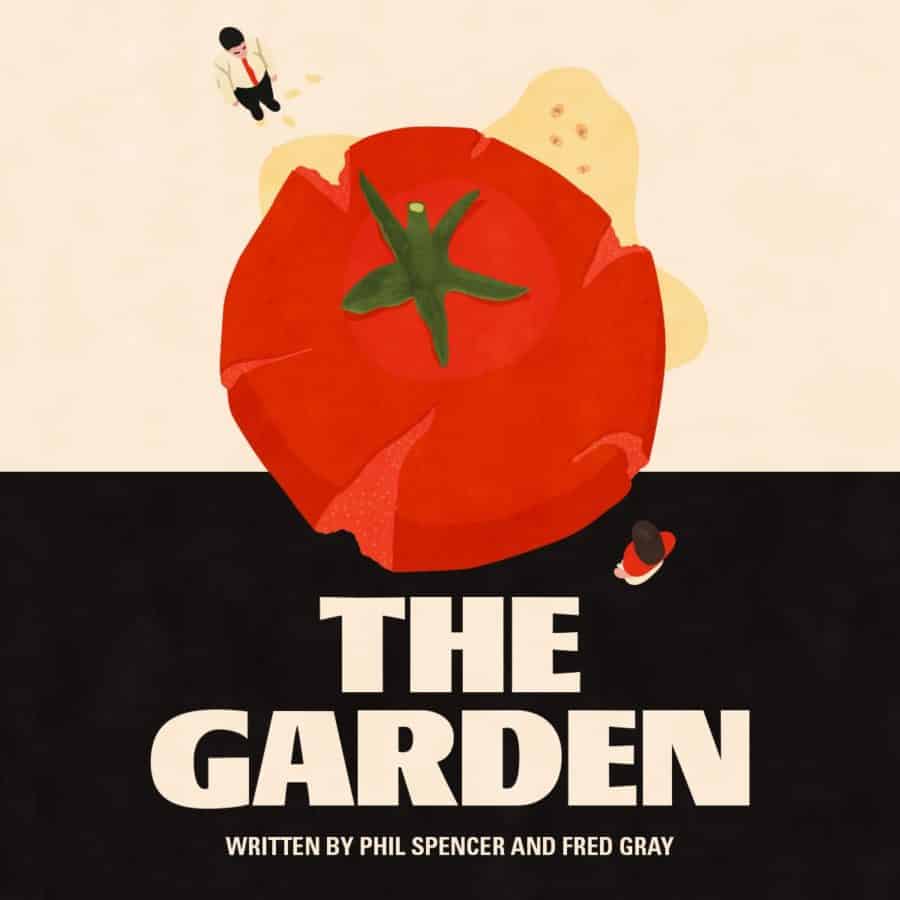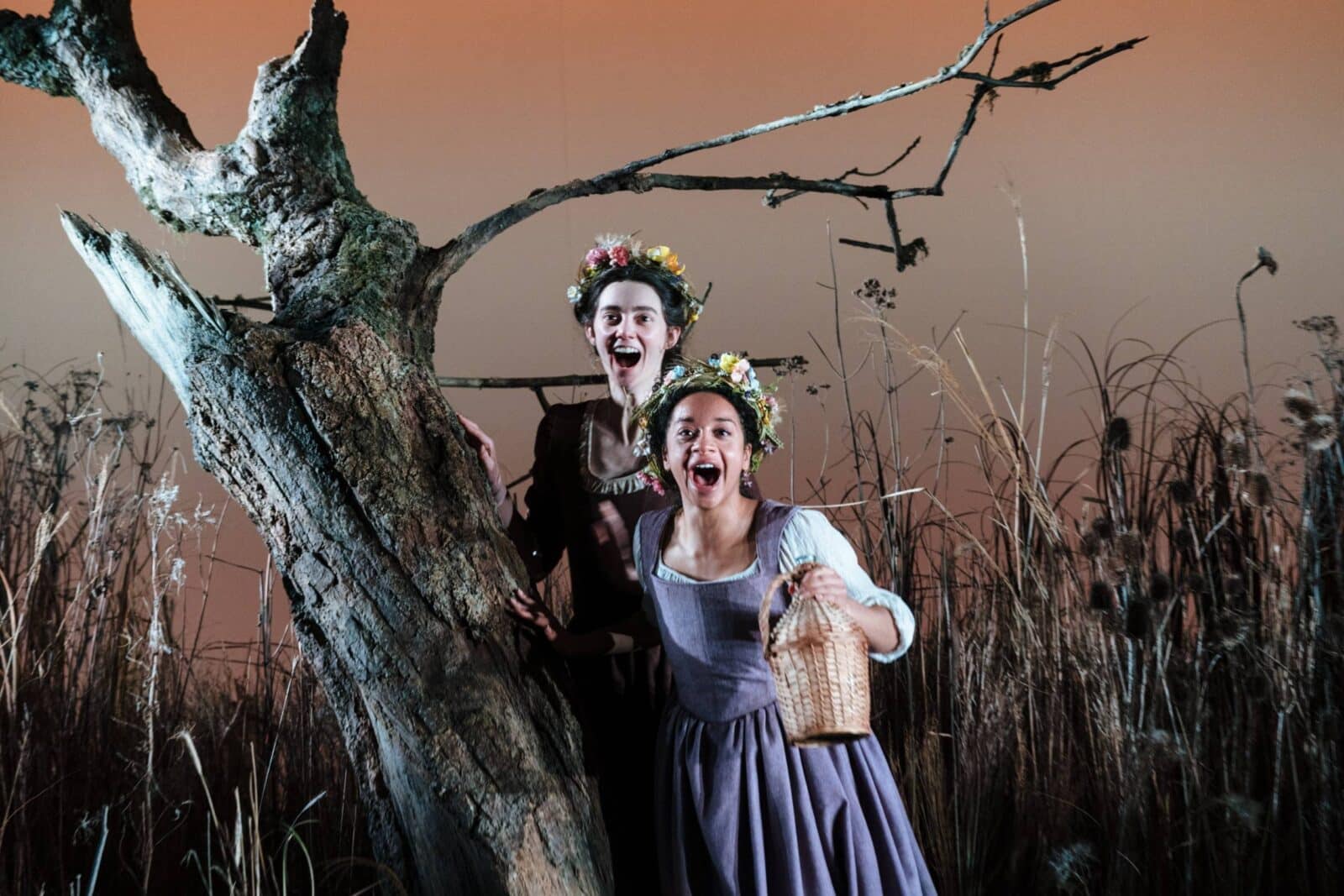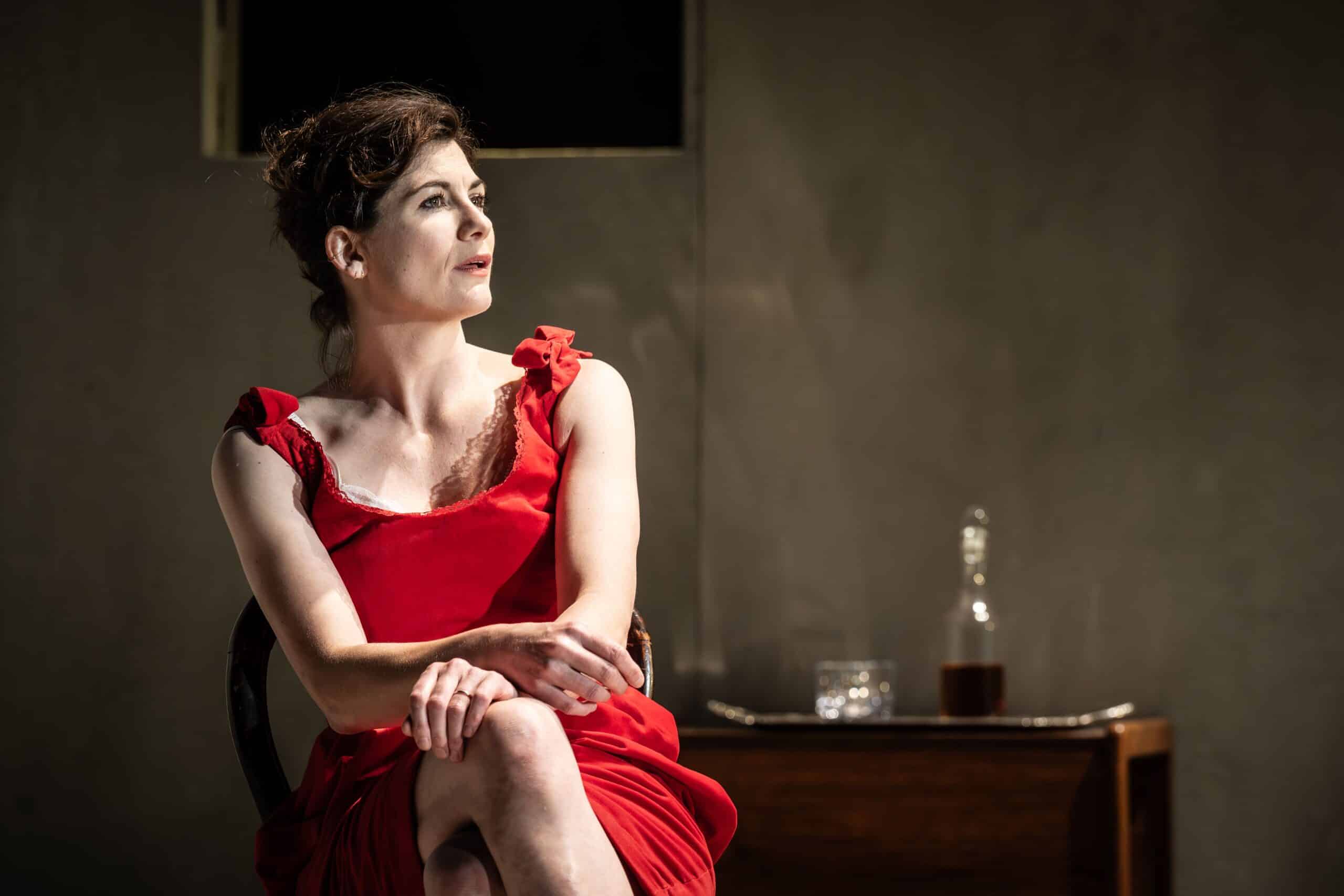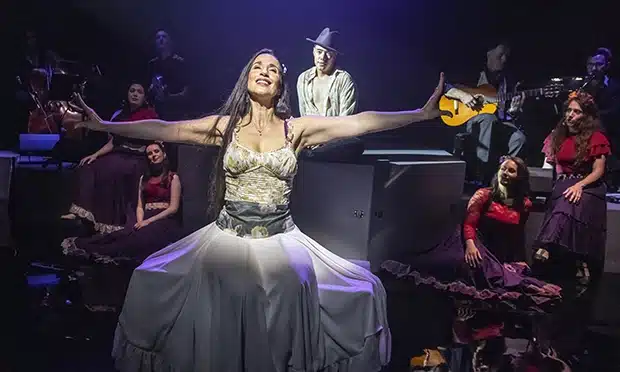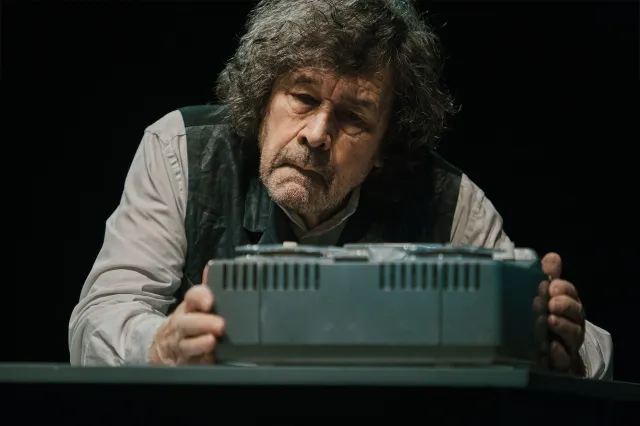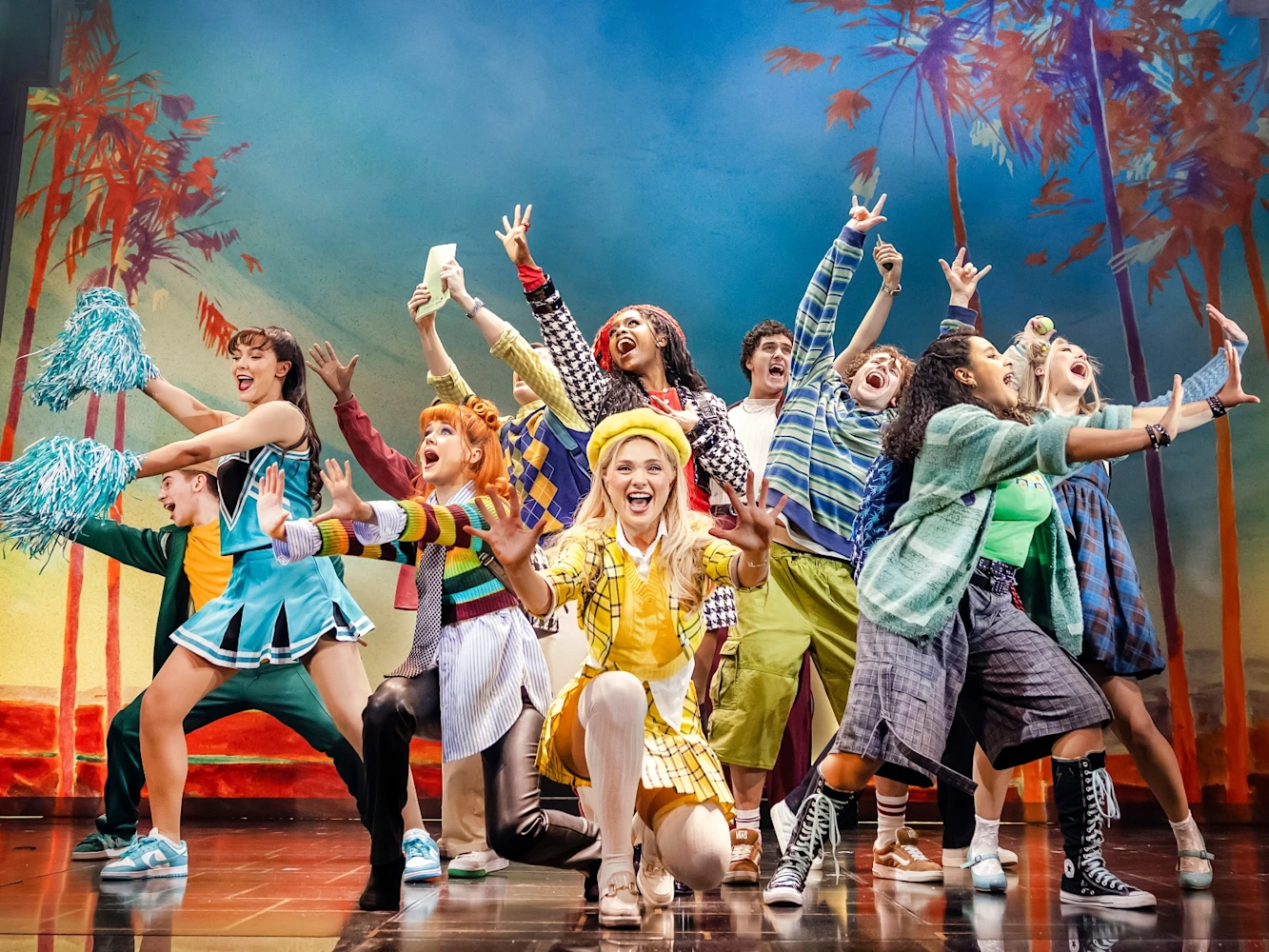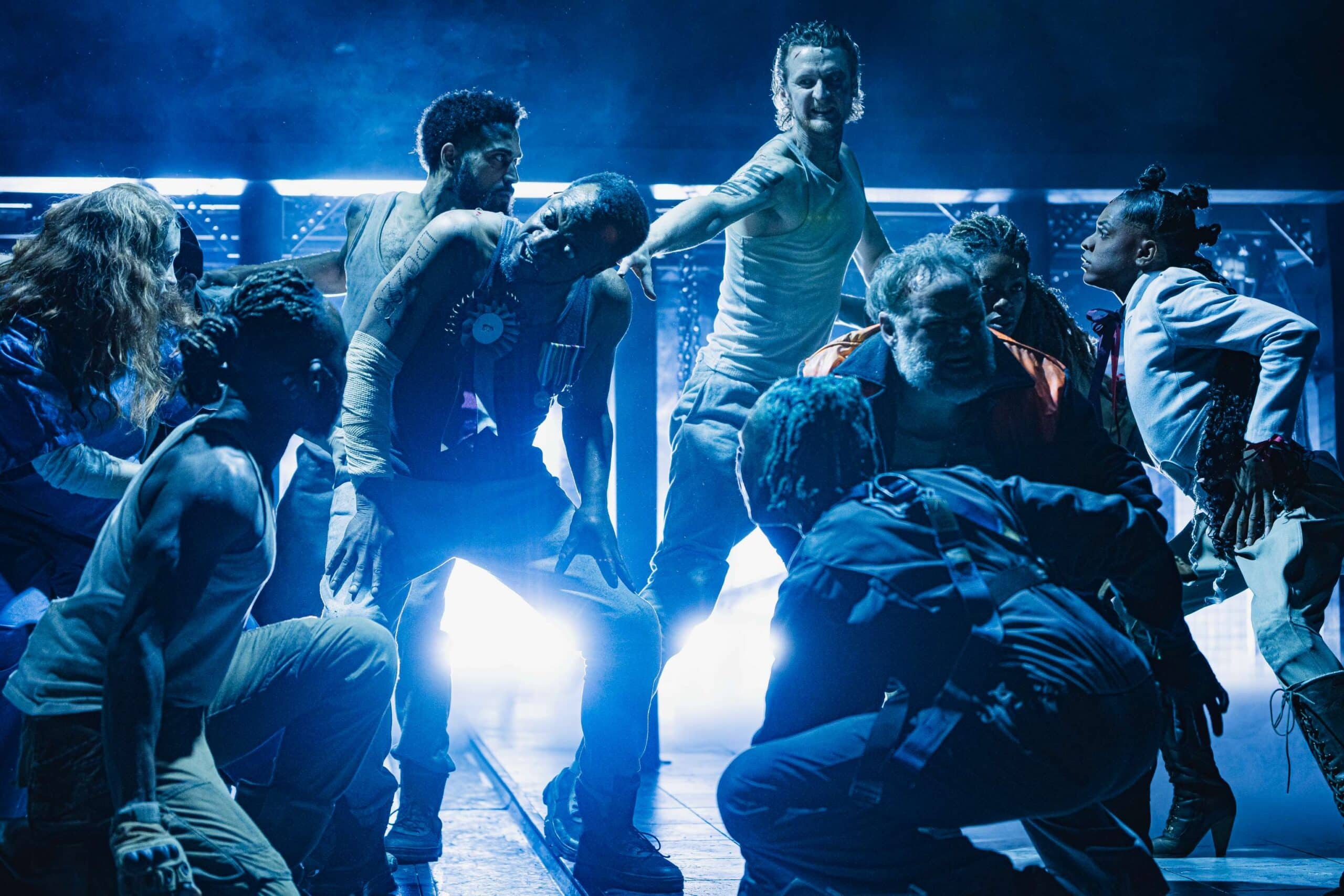Almeida Theatre
Now I am a history girlie, chuck me a bustle, a hoop skirt, a cod piece (cheeky) or a corset and I’m blissful. However uncomfortably, I am a feminist, and so often the voices of women are absent or drowned out from the past. Enter Ava Pickett!
As the suddenly sandalled masses of Islington shuffle into the theatre, we have a moment to reflect on the pretty clear title. 1536 was a pretty momentous year for Britain (in case you weren’t there). Anne Boleyn, King Henry VIII’s church-splitting second wife, was executed (not really a spoiler), and the linked delusion of the catholic monasteries began in full. “The great whore” as Boleyn was spun by an effective if nasty royal PR campaign convinced many across the country, used to believing official lies, but not everyone.
Yet are we in the dizzy, steaming alleyways of London? Fascinatingly no, we are in a stunningly realistic (thanks Max Jones) field in Essex. The thistles are swaying, an old oak is creaking, the mist is dispersing as the day heats up, and we are introduced to our girls. Siena Kelly is “a woman too modern for her time” Anna, working in service, most like the fated queen, all bite and fire, but also dancing with the devil, revelling in the power she holds over men with her sexuality. Her best friends are Mariella, a stoic, heartbroken Tanya Reynolds, again navigating the dangerous role of midwife, in a deeply misogynistic and heir-obsessed time. Also, Jane (Liv Hill) almost a comic relief, a little slow, desperate to conform to the impossible and idealised ideas of the time, “Women don’t need to be clever, they need to be good”, she chides the other two.
As we rustle through the long one-act play, flashes of a year explode in Jack Knowles’ lightning crack scene changes: marriages, at least four romping sex scenes, make-ups, break-ups and betrayal. If it all sounds a little period-rom-com-ish at points, you are lulled into that. Pickett uses modern language and bursting comedy, all while circling contemporary 16th-century issues. But this is by no means frothy. The weaving of political and personal is masterful as the women realise what the queen’s fall means for them, two days’ journey away from the capital. Two of the girls sharing a stolen pear as a treat, learning to dance before Jane’s wedding, this sunburn summer of friendship could be at any time in history, just three gobby Essex girls. A testament to an utterly tremendous creative endeavour.
Lyndsey Turner direction pulls the most from all the cast and creatives, like silk from a tray of worms (sorry, an odd but vintage metaphor). Kelly taking up all the space, the loudest, the prettiest yet the most doomed, Hill naively clutching onto this concept of goodness as a protector, and Reynolds trying to hold everything together. Despite the male characters coming across as a little two-dimensional, Angus Cooper and Adam Hugill do their best as the boy baddies in a world of baddies.
Boleyn herself is ironically silent in the historical records, with seventeen love letters to her from the king, but not one reply survives. If the former queen of England is all but unrecorded normal women feature even less. Yet Pickett and the team have crafted a tale of reality, of women enduring one of the worst periods of patriarchal abuse, of resilience and friendship. The deluge of blood and tears is shed on a hot field of our bright England. Yet reclaiming the narrative and breathing power into it is our only hope to recontextualise the past, improve the present, and hopefully change the future. I may seem overeager, but remember that 1536 marries my two loves (costume and feminism) together seamlessly, and for that, I shall gush until the cows come home!
Book tickets here


